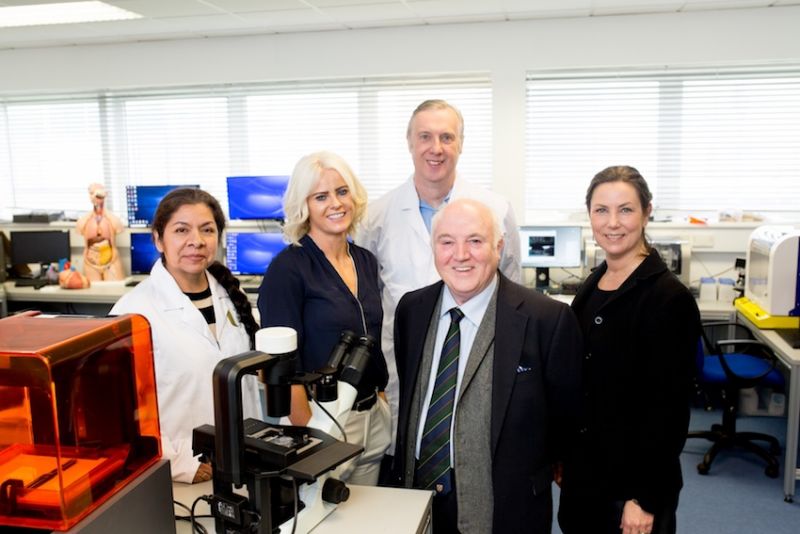The former Delta Packaging Chairman has donated £190,000 to Ulster University to develop the David Cross Research Fund in memory of his son who tragically died at the age of 33 from malignant melanoma, an aggressive form of skin cancer.
Skin cancer is the most common cancer in Northern Ireland with up to 4,000 people presenting as newly diagnosed each year. 15,400 new skin cancer cases are diagnosed in the UK every year with between 2 to 3 million cases reported globally.
The David Cross Research Fund was established in 2015 and supports the development of innovative approaches to diagnose and treat skin cancer. The programme of research led by Ulster University Professor Tara Moore, alongside her colleagues in Biomedical Sciences Research Institute, aims to help early diagnosis of skin cancer and develop a more personalised approach to treatment.
Tara Moore Ulster University Professor of Personalised Medicine commented;
“Using the generous donation from Dr Terry Cross OBE, Ulster University has formed a global network of collaborators with expertise for establishing new and innovative approaches for the diagnosis and treatment of skin cancer.
“We are identifying novel targets for therapy based on the activities of a network of regulatory proteins, known as nuclear receptors, that can be applied to both the diagnosis and management of skin cancer. We are currently focused upon three main nuclear receptors that dictate the degree of aggressiveness of the tumour and its likelihood to become invasive. This is an exciting focus for our research with respect to new treatments and potential for identifying those patients with primary tumours at risk for recurrence.”
Dr Terry Cross OBE commented;
"I am committed to working with Ulster University to find new, innovative ways to tackle this horrible disease.
“I want to use my son’s unfortunate fatal experience to help other people and the David Cross Research Fund through Ulster University has committed to making a significant, durable contribution to society and can ensure that together we can transform the lives of skin cancer sufferers.
“It is increasingly important for people like me to support the high impact work of our universities, enhancing existing work to create a lasting impact. It has been a very worthwhile, and rewarding, experience and I am very happy with the impact made from my investment.”
Professor Moore commented;
“As we progress with this research we aim to develop a detailed biological and biochemical diagnostic profile of the skin cancer each patient has and in doing so be in a position to predict more specific novel treatments to be used alongside existing therapeutics, in a personalised medicine approach.”

